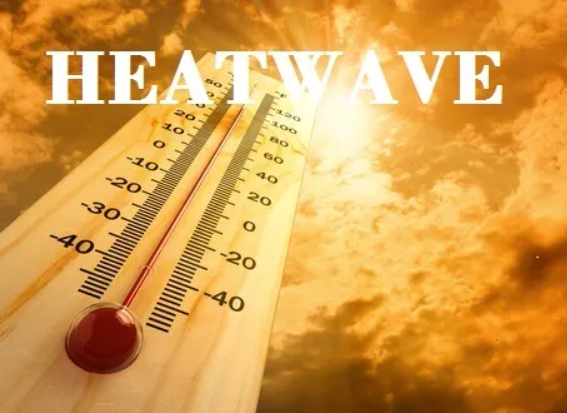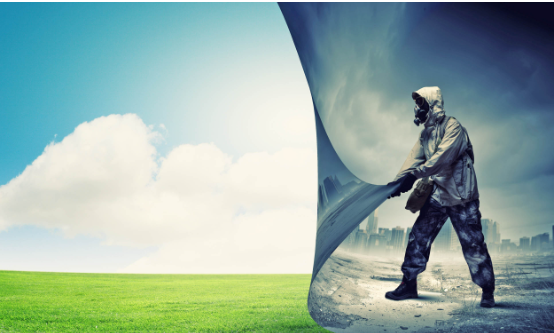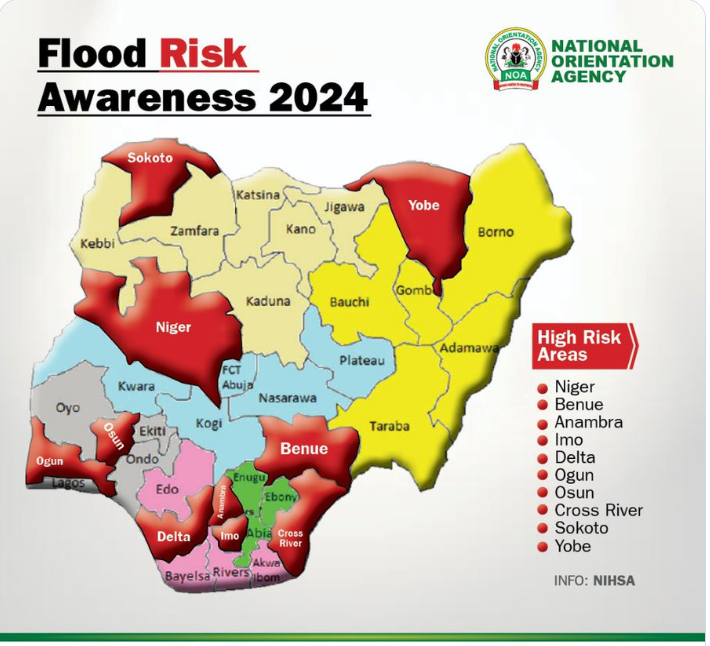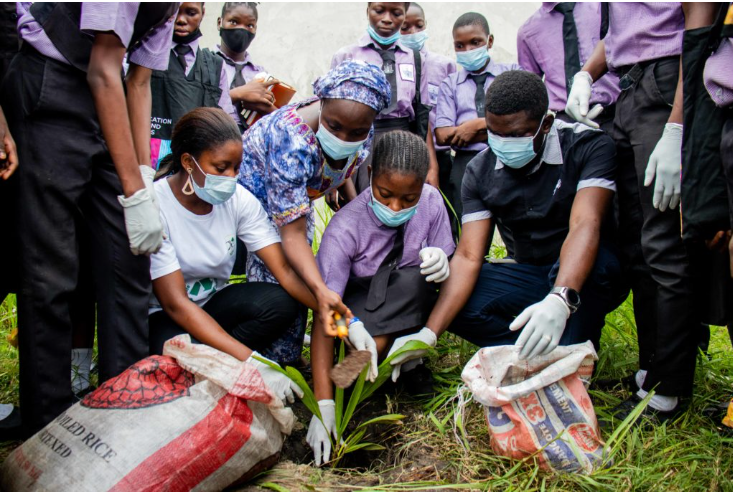By Joke Kujenya
ON A SCORCHING afternoon in Gbagada, located between Kosofe and Shomolu local government areas in Lagos, Maria Abbey felt the relentless heat seep through the walls of her small apartment.
Despite having her ceiling fan on full blast, the stifling air offered no respite.
By noon, she narrated to JKNewsMedia how the temperature had soared past 100 degrees, leaving her and her young children struggling to stay cool.
Maria, like many others in the metropolitan city of Lagos months ago, was caught in the grip of a brutal heatwave that had left thousands across the Nigerian states sweltering.
It was not uncommon then to hear lamentations like “wow! This heat is something else.” “It’s so hot, one’s skin could boil,” and such likes.
In late March and early April, reports note that a brutal heatwave engulfed the Sahel and West Africa, driving temperatures to unprecedented levels.
In particular, Mali recorded a scorching 48.5°C on April 3, marking the peak of this deadly phenomenon.
The Gabriel-Toure Hospital in Bamako was said to have reported a spike in excess deaths, with 102 fatalities in the first four days of April alone. Many of these deaths, predominantly among those over 60, were attributed to the extreme heat.
The World Weather Attribution (WWA) group, consisting of leading climate scientists, confirmed that such extreme temperatures would have been impossible without human-induced climate change.
The heatwave, exacerbated by the burning of fossil fuels and other human activities, made daytime temperatures 1.5°C hotter and nighttime temperatures 2°C hotter in regions like Mali and Burkina Faso.
Across a broader area, including Niger, Nigeria, Benin, Togo, Ghana, Côte d’Ivoire, Mauritania, Senegal, Gambia, Guinea-Bissau, and Guinea, temperatures soared above 40°C.
Heatwaves, like the recent one, are still relatively rare even in today’s climate, with 1.2°C of global warming.
However, they are expected to become more frequent and severe unless there is a drastic reduction in emissions.
The relentless heat, occurring between the months of March and April, was particularly overwhelming, compounded by existing challenges such as conflict, poverty, limited access to safe drinking water, rapid urbanization, and strained health systems.
The lack of heat action plans in countries like Burkina Faso and Mali further aggravated the situation.
Such plans, which could have outlined emergency responses to dangerous heat, are crucial in reducing heat-related deaths. The Gabriel-Toure Hospital’s quick reporting of heat-related fatalities served as a stark warning of the dangers of extreme heat.
The WWA group’s study, involving researchers from universities and meteorological agencies in Nigeria, Burkina Faso, and several other countries, stresses the urgent need for global action to mitigate climate change.
As temperatures continue to break records worldwide, including in the United States (US), Mexico, Saudi Arabia, and Greece, the threat posed by extreme heat in these countries, is undeniable.
Climate change experts say that is what is making heatwaves more frequent, longer, and hotter, and the world must adapt quickly.
The also noted that as the planet warms, dangerous heatwaves will become more common, highlighting the critical need for comprehensive strategies to protect vulnerable populations and mitigate the impacts of extreme weather events.
In the US, over 200 million people were reported to have experienced high temperatures of at least 90 degrees this past week, with more heatwaves predicted this summer.
The National Weather Service (NWS) defines a heatwave as a period of abnormally hot weather generally lasting more than two days, but what qualifies as “abnormal” can vary by region.
For instance, the NWS reports that while Texas might regularly see high temperatures, a similar heat in Minnesota would be considered a severe heatwave, explains Jeff Masters, a meteorologist with Yale Climate Connections.
He affirms the dangers of extreme heat which are numerous and potentially deadly and heat-related illnesses can quickly escalate if not recognized and treated early.

Symptoms of heat exhaustion include heavy sweating, fatigue, a weak pulse, cool or clammy skin, headache, dizziness, nausea, and fainting. Vulnerable groups such as young children, infants, pregnant women, the elderly, and those with chronic medical conditions are at heightened risk, especially if they live alone or have mobility issues, the meteorologist cautions.
Heat kills primarily through three mechanisms: heatstroke, when the body’s core temperature rises to dangerous levels causing organs to fail; cardiovascular strain, as the heart works harder to cool the body; and dehydration, which severely stresses the kidneys. Heat also affects cognitive functions, leading to confusion and difficulty thinking clearly, according to several doctors interviewed by the Associated Press (AP).
This phenomenon isn’t isolated to the US as countries across the northern hemisphere, including Mexico, Saudi Arabia, and Greece, have also been battling extreme heat.
Reports note that in Mexico, monkeys have fallen dead from trees due to heatstroke, and at least 125 people have died, predominantly among the most vulnerable populations.
Also, more than 1,300 pilgrims died from heat-related illnesses during the 2024 Hajj in Mecca, with many collapsing from the oppressive temperatures.
Similarly, prolonged heat in India has killed over 100 people and left hundreds more suffering from heatstroke in Pakistan.
Human-caused climate change has significantly increased the likelihood and intensity of these heatwaves as WWA reports that climate change made the recent heatwave in Mexico, the Southwestern United States, and Central America 35 times more likely and 2.5 degrees hotter (1.4 degrees Celsius).
As the planet warms, scientists predict more frequent and severe weather events, including record-breaking heat and rainfall.
Safety Tips:
STAYING SAFE during a heatwave is paramount. If possible, remain indoors in an air-conditioned space and for those without air conditioning, community cooling centers can provide relief.
The Centers for Disease Control and Prevention (CDCP) advises drinking plenty of water, taking cool showers or baths, wearing lightweight and loose-fitting clothing, and minimizing the use of stoves and ovens.
The agency says it’s also crucial to check on friends and relatives, particularly those without air conditioning at this period.
For those who must be outside, experts recommend limiting sun exposure, staying in the shade, and using an umbrella just as staying hydrated is essential — warning that people don’t wait until you’re thirsty to drink fluids.

Also, wear sunglasses and a wide-brimmed hat, and try to complete outdoor tasks early in the morning when it’s cooler.
For those who work outside, consider soaking your shirt in cool water and rewetting it as needed.
Pets are not left out as they also need protection during extreme heat. Keep them indoors if possible, and if they must go outside, ensure they have access to shade.
Regular walkers are advised to schedule walks for cooler times of the day, like early morning or evening, and protect their paws with breathable shoes, and never leave a pet in a hot car.
In cases of heatstroke, move the affected person to an air-conditioned space, offer sips of water, loosen their clothing, and apply cool, wet clothes or place them in a cool bath, and seek medical help immediately if they vomit.
As Maria Abbey and countless others navigate these grueling conditions, understanding the risks and taking proactive measures can make a life-saving difference.
At JKNewsMedia, our dedication to delivering reliable news and insightful information to our cherished readers remains unwavering. Every day, we strive to provide you with top-notch content that informs and enlightens. By donating to JKNewsMedia, you directly contribute to our mission of delivering quality journalism that empowers and informs. Your support fuels our commitment to bringing you the latest updates and in-depth analysis. Let's continue to uphold the highest standards of journalism and serve our community with integrity and dedication. Thank you for being a part of the JKNewsMedia family and for your ongoing support.





